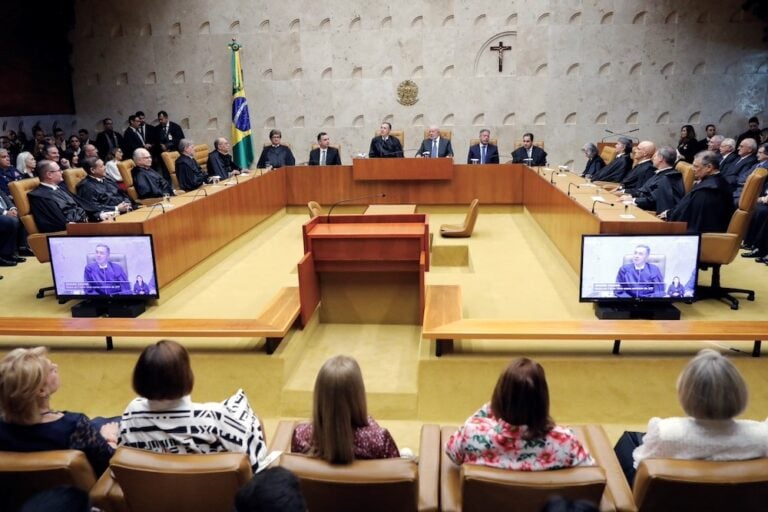The text of the law was modified at the Chamber of Deputies and has waited for the approval by the Senate since May 2010.
(Abraji/IFEX) – On 25 October 2011, the Brazilian Senate approved the Brazilian Freedom of Information Law, which puts an end to eternal secrecy of documents. Now the text of the law has to be approved by President Dilma Rousseff to come into force.
Before the approval, the former president Fernando Collor de Mello, now a senator, insisted that the text could jeopardize “national safety and integrity”. He was referring to agreements on the borders of the country, especially the acquisition of an area from Bolivia in 1904 and the conquered territory after the Paraguayan War. However, the majority of senators decided to approve the original text. According to the text approved, secrecy will last no longer than 50 years. Information can be classified as reserved, with 5 years of secrecy; secret, 15 years; and top secret, 25 years. Top secret documents can have their secrecy renewed only once.
The original project was proposed by the Executive in 2009, after a seminar organized by the Right of Access to Public Information Forum (a coalition of 25 groups coordinated by Abraji). The text was modified at the Chamber of Deputies (the lower house of the National Congress) and has waited for the approval by the Senate since May 2010.
After the approval by president Dilma, the law will come into force 180 days later.
Brazil is about to be the 89th country in the world to have an FOI law. The text approved by the Senate is comprehensive and includes regulation on data produced by the three levels of administration and the three power branches. But some points remain unclear, like budgetary issues, the appellate body (which is presided by the Inspector-General, who has a minister status), the privacy of the citizen who asks for information, and the reclassification of documents.
Public bodies will have two years to reclassify information previously classified as Secret and Top Secret – but the law is not clear about the new secrecy time: it is possible that a document already kept secret for 100 years could be reclassified as top secret, meaning it would be out of reach for an additional 50 years.
Click here to read the original text of the law in Portuguese


